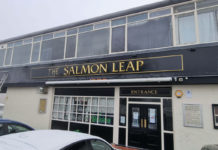Industry-led protocols for how venues might operate in future being developed by UK Hospitality

A SERIES of industry-led protocols on how businesses across the hospitality sector might operate post-lockdown is to be put to the UK and Scottish governments amid concerns that trading under strict social distancing restrictions will not be viable for many.
Trade group UK Hospitality has set up eight working groups covering different sectors of the industry – including hotel and accommodation businesses; late night venues; pubs and bars; and restaurants and casual dining venues – to develop protocols, practical guidance and operational considerations to safeguard staff and customers for when businesses can reopen. Each will consider specific sector needs, the timing of reopening and the scale of social distancing requirements as well as staff safety requirements, customer safety requirements, food safety matters, supply chain lead-times, and marketing, perceptions and customer confidence.
The organisation will put these industry-led proposals to the UK and Scottish governments in a bid to “reach a position where businesses will be able to reopen through compliance with relaxed social distancing rather than strictly by type of premises as there is much crossover”.
UK Hospitality (UKH) chief executive Kate Nicholls has written to economy secretary Fiona Hyslop and tourism secretary Fergus Ewing informing them of the development of these protocols, which she said will reflect the “practical and operational challenges of re-opening different types of hospitality businesses and assess the practicalities of future social distancing requirements”.
“The importance of this approach is that it is industry-led and will be relevant to all hospitality businesses regardless of location, scale or whether chain or independently operated,” she said.
“UKH believes that it will be important to have clear and unambiguous protocols available to the entire industry, developed by an authoritative source and avoid a plethora of guidance which may end up causing confusion.
“Hospitality was among the first sector of the economy to be affected by the Covid-19 outbreak and will be among the last to recover; for some businesses, the period of closure will be prolonged and for others re-opening will be sub-optimal.
“Optimum recovery will be achieved through a phased approach determined by social distancing guidelines, industry-developed operational protocols, and continued and enhanced support for closed businesses.”
It comes as both UKH and the Scottish Licensed Trade Association (SLTA) have underlined the need for long-term support for the industry post-lockdown amid concerns that operating under social distancing restrictions will not be viable for many businesses.
SLTA managing director Colin Wilkinson said a “long-term, financially-supported, practical and realistic plan” is needed if businesses are to survive.
“Our main concern is that if we do open under current social distancing restrictions, it will not be financially viable to actually open,” he said.
“Indications are that capacity levels in bars and pubs could drop by between 60% to 80% depending on the layout of premises. In hotels, break-even usually occurs at the 65% to 70% plus occupancy so again current social distancing restrictions would not achieve sustainability for such businesses.
“There is also the concern that any ongoing government support will stop if we are ‘open’. If the industry is to open, then continuing government support will be essential for ongoing businesses costs until businesses are fully operational.”
Fraser Campbell, head of family business at Campbell Dallas chartered accountants, said a prolonged period of social distancing is a “perfect storm for a sector that thrives on people socialising in a convivial environment”.
“When the restrictions are eased, restaurants, bars, attractions and hotels will probably need to observe social and physical distancing measures as part of the ‘new normal’,” he said.
“This will mean less physical capacity in outlets, and less income as two-metre distancing will reduce restaurant and bar capacity by at least 50%, assuming most tables are currently no more than one metre apart.
“The idea of social distancing in a usually busy pub, bar or club is inconceivable and could well be a disincentive to customers, resulting in a further contraction in demand.”























